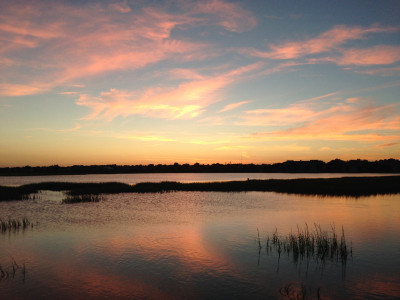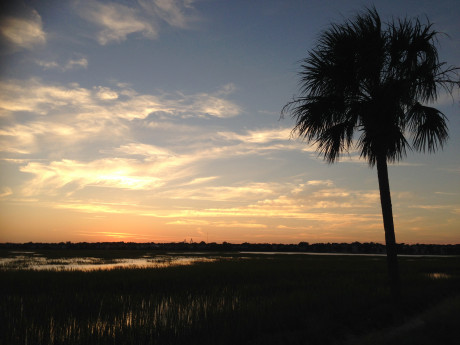A
“I focused primarily on environmental law because I knew that’s what I wanted to do. I took internships at environmental non-profits. After I graduated I worked for two years at Defenders of Wildlife in DC, which focuses on endangered species work before moving here.”
As part of a regional non-profit organisation Heather works in a small Charleston office, concentrating on coastal issues mainly related to wetlands protection and water pollution.
“It is the predominant environment here and an extremely sensitive one, and many projects or developments here are going to impact wetlands.”
It’s clear what makes Heather’s work so rewarding is giving a voice to the wildlife areas around Charleston. So it’s not surprising to hear Heather sees herself primarily as an environmentalist, and views her education, experience and expertise as a lawyer the tools she’s been given to make a difference.
“I’m an environmentalist who has this education and training and is able to affect change. But I think a lot of other public interest lawyers would say the same thing.”
The challenge facing Heather and other environmentalists is advocating ways to be smarter when developing in a region that is already densely urbanized.
This is why environmental and conservation groups spend a lot of time with state and federal agencies, trying to give them the right information they need to make an informed decision when issuing permits for proposed planning and development.
The wetlands not only provide the supernal backdrop to Charleston’s iconic charm, they are also a major source of recreation and enjoyment to so much of local community.However, in residential and industrial debates championing progress, the environment is often neglected by invested parties. Some business groups may even view environmental protection grounds as anti-development.
Heather says an important part of the decision-making process for projects affecting the environment is to provide alternatives and understand the invaluable role natural resources play in maintaining balance in the larger ecosystem.
“Impacting natural resources may have severe and unintended consequences that must be considered before projects move forward.”
Assessing the environmental cost and consequences related to revenue based expansion is a complex issue. In Charleston this is especially the case regarding the controversial redevelopment of the old cruise terminal on East Bay Street and Market Street, as well as the extension of I-526 to James Island based on original design plans made over 40 years ago when construction of the interstate began.
Heather says it is never difficult find people and agencies in our local communities interested in protecting fragile habits. The added challenge of non-profit groups is using limited resources to get the right information to decision-makers and the public who have time to listen to complicated issues, which are difficult to package in catchphrases and memorable quotes.
Heather appreciates there’s always going to be different perspectives when discussing commerce and environmental sustainability because there are so entwined with each other. Hopefully, this progressive approach will continue to nurture healthy debate with the array of interested groups concerned about city’s future to keep Charleston beautiful.









